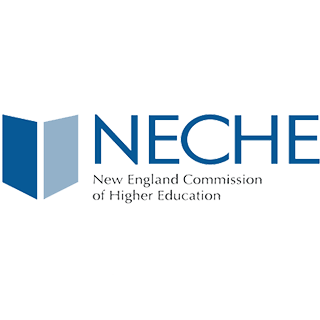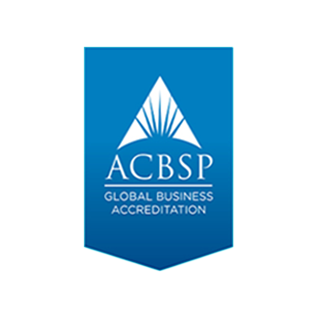For Jazzmen Shipp, Earning a Degree Changed Everything
Business | 2min Read

Whether you want to pursue a career in accounting, banking, economics, financial markets or taxation, a degree in accounting or accounting finance may be right for you. SNHU offers two accounting programs to meet your unique path and desired educational experience:
Gain the skills you need to succeed in the field of accounting and learn career-focused skills that can help you move forward in the fast-paced business world when you enroll in our online Bachelor of Science (BS) in Accounting or Bachelor of Science (BS) in Accounting and Finance.
No matter which accounting degree you choose, you'll complete a combination of major courses, general education classes and free electives. Read on to see which program fits your career goals.
If you're looking to become a U.S. Certified Public Accountant (CPA), SNHU's Bachelor of Science (BS) in Accounting may be able to support you on that journey.
This online bachelor's in accounting program was intentionally aligned to content on the CPA exam, helping you build the accounting, auditing and tax skills you need.
This online accounting degree program also features embedded certificates and optional credentials that can set you apart in your field. Students have the opportunity to pursue credentials including; Wiley Excel for Accountants, Volunteer Income Tax Assistance (VITA) certifications and certificates in key soft skill areas.
Note: The BS Accounting program at SNHU can support 120 of the 150 credit hours most individuals need for exam eligibility in most states.
Interested candidates should consult SNHU’s Licensure and Certification Disclosures page for more information about program eligibility in each U.S. jurisdiction prior to enrolling.
Explore the intersection of law and finance with a Bachelor of Science (BS) in Accounting with a concentration in Forensic Accounting and Fraud Examination.
Forensic accountants and fraud examiners can help tip the scales of justice in legal cases such as asset misappropriation, tax fraud and corporate corruption. They help provide accounting firms, law offices and government agencies the evidence they need to uncover, assess and prosecute theft in both criminal and civil offenses.
The concentration also contains content that is intended to support individuals interested in pursing the Certified Fraud Examiner (CFE) certification exam.
Learn more about the online forensic accounting & fraud examination concentration.
Courses may include:
The Bachelor of Science in Accounting includes an Accelerated BS-to-MS Pathway Option. If you’re planning a future beyond your bachelor's, an accelerated BS-to-MS pathway option for this degree program can help prepare you for your next step. This lets you:
Plus, the accelerated pathway can help you satisfy the 150 credits required to sit for the CPA exam in most states even faster, for less. This could mean your goal of becoming a U.S. Certified Public Accountant is even closer than you think.
If you're interested in pursuing the BS-to-MS pathway option, discuss it with your admission counselor to ensure you meet all of the academic requirements.
Visit the course catalog to view the full BS in Accounting curriculum.
If you’re looking to blend elements of accounting and finance, SNHU's Bachelor of Science (BS) in Accounting and Finance program prepares you for careers in both professions.
In the bachelor of accounting and finance degree program, you'll learn how to keep an organization's finances in order and think strategically about its financial future. Consider this program if you want to show flexibility to a potential employer, could see yourself in a role requiring both accounting and finance skills or are unsure where you’d like to focus within the two disciplines.
Throughout your coursework, you'll gain critical training in Microsoft Excel for Accountants, as well as experience in Tableau and Power BI.
In the online accounting and finance program, you'll learn how to:
Prepare for a career in management accounting with a Bachelor of Science (BS) in Accounting & Finance with a concentration in Management Accounting.
Unlike financial accountants, management accountants are focused on making future projections for a business or organization. They analyze and explain the "why" behind the numbers, and provide relevant financial information for internal management to inform decision-making and improve performance.
Whether you’re a new or seasoned accounting professional, specialized education in management accounting can help you make the most of growing employment opportunities.
Courses may include:
Visit the course catalog to view the full BS in Accounting and Finance curriculum.
All undergraduate students are required to take general education courses, which are part of SNHU's newly redesigned program, The Commons. The goal of The Commons' curriculum is to empower you with some of the most in-demand skills, so you can succeed not only in your academic career, but in your personal and professional life too.
The following tech requirement is needed for the BS in Accounting degree program.
Video Communication Platform
Internet Connectivity for Virtual Labs
Minimum Specifications:
Additional Information:
The content in SNHU's BS Accounting program was intentionally aligned to the 2024 Uniform Certified Public Accounting (CPA) Examination®. Learners interested in the exam and licensure may also pursue SNHU’s MS Accounting degree to help them achieve educational eligibility, which stands at 150 credits in most jurisdictions. Completion of the BS Accounting degree alone will not satisfy complete educational eligibility to sit for the CPA licensure exam or to become licensed certified public accountants in most jurisdictions.
Licensing requirements to sit for the CPA licensure exam vary from jurisdiction to jurisdiction. Students are encouraged to review their jurisdiction -specific requirements. Jurisdiction educational requirements can be found on the website of the National Association of State Boards of Accountancy (NASBA), while Jurisdiction CPA licensing requirements can be found through the Accounting Licensing Library, powered by the NASBA.
For more information on which SNHU programs satisfy educational eligibility by jurisdiction, please visit our licensure and certification disclosure page.
Our no-commitment application can help you decide if SNHU is the right college for you and your career goals. Apply up until 2 days before the term starts!
Upcoming term starts: May 4, 2026 | June 29, 2026
Attending college online at SNHU can be a life-changing experience. In fact, 93.4% of online students would recommend SNHU according to a 2025 survey with 8,718 respondents.
Our instructors are at the heart of SNHU's mission of student success. With real-world business experience and passionate dedication to our students and their learning, our faculty are with you every step of the way. Whether that means engaging with students on discussion boards, communicating concepts and ideas, or helping you explore your passion and your future, SNHU instructors strive to make your learning experience both valuable and memorable.

Before finding a love for online teaching, Mona Stephens spent much of her auditing and accountancy career in local government. She is a Certified Public Accountant and Certified Internal Auditor who loves working with students and sharing her passion for all things accounting. Stephens is also a member of numerous industry organizations, including the Government Finance Officers Association, the American Association of Accountants and the Institute of Management Accountants.
Position
Associate Dean, Business
Joined SNHU
2011
Education
“I really enjoyed working with students and sharing my passion for accounting with them, so I became an adjunct and have been teaching ever since.”
Mona Stephens, CPA, MSA, associate dean

Kristin Regis began her teaching career as an English instructor at Edogawa University near Tokyo, Japan. Her passion for teaching and finance prompted her to start teaching finance courses part time at SNHU (both face-to-face and online) before transitioning into a full-time finance faculty lead role. Prior to working full time for SNHU, she held corporate and municipal leadership positions for over 10 years. Regis is a member of the Financial Planning Association.
Position
Senior Associate Dean
Education
Read more about Kristin Regis and other faculty at SNHU.
Hear what some of our SNHU instructors have to say about our online accounting degrees:

“Today's business environment requires professionals to rapidly adapt to change, strategically assess resource constraints, and provide solutions to complex problems related to customers or clients, staff, structure, operations and shareholders.”
Dr. Kimberly Blanchette, academic associate vice president of online business programs
You’ll take your courses within SNHU’s Brightspace platform. This is where you’ll find your:

At Southern New Hampshire University, you'll have access to a powerful network of more than 400,000 students, alumni and staff that can help support you long after graduation. Our instructors offer relevant, real-world expertise to help you understand and navigate the field. Plus, with our growing, nationwide alumni network, you'll have the potential to tap into a number of internship and career opportunities.
Recently, SNHU has been nationally recognized for leading the way toward more innovative, affordable and achievable education:
Founded in 1932, Southern New Hampshire University is a private, nonprofit institution with over 250,000 graduates across the country. SNHU is accredited by the regional accreditor New England Commission of Higher Education (NECHE), which advocates for institutional improvement and public assurance of quality.
No application fee. No test scores. And no college essay. Just a simple form with basic information. It’s another way SNHU helps you reach your goals sooner.
It's easy, fast and free.
Whether you're applying for an undergraduate or graduate degree, you’ll fill out a form to verify your previous education experience. As part of our admissions process, we'll help you request transcripts from your previous school(s) to see if you can transfer any credits into your SNHU program! (Also for free!)
After reviewing your official evaluation, you can decide if SNHU is right for you! If you choose to enroll, just pick your start date and get ready for classes to begin.
Talk to an admission counselor: 888.327.SNHU | enroll@snhu.edu
SNHU is accredited by the regional accreditor the New England Commission of Higher Education (NECHE). The university also carries specialized accreditations for some programs.
These programs and their concentrations are accredited by the Accreditation Council for Business Schools and Programs (ACBSP). Student achievement data can be found on the ACBSP accreditation page.


As a nonprofit university, SNHU offers some of the lowest online tuition rates in the country. And when you work with our Financial Services team, we'll explore ways to help you save even more on your education – and customize a payment plan that works for you.
*before previously earned credits are applied
Tuition rates are subject to change and are reviewed annually.
**Note: Students receiving this rate are not eligible for additional discounts.
Additional costs: Course materials vary by course.
If 30 of your prior learning credits ($342/credit) are accepted toward your bachelor’s degree.
Your remaining tuition cost: $30,780
If 45 of your prior learning credits ($342/credit) are accepted toward your bachelor’s degree.
Your remaining tuition cost: $25,650
If 60 of your prior learning credits ($342/credit) are accepted toward your bachelor’s degree.
Your remaining tuition cost: $20,520
If 75 of your prior learning credits ($342/credit) are accepted toward your bachelor’s degree.
Your remaining tuition cost: $15,390
If 90 of your prior learning credits ($342/credit) are accepted toward your bachelor’s degree.
Your remaining tuition cost: $10,260
How we estimate your tuition cost:
We look at the cost per credit multiplied by the number of credits you need to earn for a bachelor's degree. Most bachelor's degrees require 120 credits. SNHU allows you to transfer in up to 90 credits, requiring a minimum of 30 credits to be taken at SNHU. This is only a tuition estimator, and doesn't account for other fees that may be associated with your program of choice.
Transfer up to 90 credits toward your bachelor's degree program at SNHU. If you’ve taken one course or many, we’ll evaluate them for you.
Fill out the FAFSA to see if you’re eligible for grants or work-study. (You could also be offered loans, though you’ll have to pay those back later.)
Earn credits in leadership, technology and more – while taking advantage of tuition discounts for active-duty service members and spouses.
Getting free money for college – from SNHU or an outside organization – could help you save hundreds or even thousands of dollars.
Bring in credits from popular options like CLEP, Sophia Learning, Google and other common credit for prior learning (CPL) experiences.
Learn how you can save money with tuition reimbursement from your employer.
Take advantage of an online tuition discount through your organization’s partnership with SNHU. Check with your employer to see if your organization partners with us and if you’re eligible for additional tuition savings and partner education benefits.
Get ready for a variety of accounting, auditing and financial careers in industries like healthcare, government, social service, education, international business and the private sector. If you find yourself interested in finance, you might try a career in banking, financial forecasting, analysis or advising. And if you decide to go the accountancy route, you could find yourself in any number of accounting, auditing, budgeting or tax examination roles.
Many people in the accounting field become Certified Public Accountants (CPA). If professional licensure is your ultimate goal, the BS Accounting program is a great start as you will study competencies covered on the CPA exam.
Whether you pursue the accounting or accounting and finance program, you'll be positioning yourself for success in your career. At SNHU, an online accounting degree is affordable, accredited and designed to take you where you want to go in your career – and in your life.
Some accounting and finance roles you could consider include:
Whether or not you earn the CPA designation, as a public accountant you can perform a wide range of tasks including auditing and tax preparation for companies, government entities or individuals. You can open your own agency or work for a large accounting firm.
Note: SNHU's online BS in Accounting degree program was intentionally aligned to content featured on the CPA exam. Students cannot earn CPA licensure through the SNHU program itself, and additional education is likely needed as most states require 150 credits of accounting education for exam eligibility. Therefore, if you wish to pursue CPA licensure, review of your states requirements prior to enrolling is recommended.
Analyze financial documents and other information for internal use by company management to drive business decisions. Management accountants help a company optimize its budgets and spending and can be involved in investment and spending decisions.
Establish risk management procedures or contribute to fraud investigations with a career in forensic accounting. This popular specialty area of accounting allows accountants to utilize their skills to assess financial crimes, audit personal or company records, and aid in criminal and civil investigations.
Ensure an organization's resources are being used properly and find ways to reduce waste. An internal auditor is employed by the organization itself, while an external auditor works for an auditing firm hired by other companies.
Guide businesses and individuals in decisions about expending money to attain profit. Assess the performance of stocks, bonds and other types of investments.
Median annual pay nationally for accountants and auditors as of May 2023, according to the U.S. Bureau of Labor Statistics (BLS).1
Median annual pay nationally for financial managers as of May 2023, according to the BLS.1 Statistic not based on wage data for SNHU graduates.
Understanding the numbers
When reviewing job growth and salary information, it’s important to remember that actual numbers can vary due to many different factors—like years of experience in the role, industry of employment, geographic location, worker skill and economic conditions. Cited projections are based on Bureau of Labor Statistics data, not on SNHU graduate outcomes, and do not guarantee actual salary or job growth.

My degree was absolutely worth the hard work. I was able to have control over my schedule and that was freedom for me.
According to the U.S. Bureau of Labor Statistics, typical entry-level education in accounting is a bachelor's degree.1
If you'd like to test the waters, we also offer an online associate in accounting and undergraduate certificate in accounting online. These options can give you the opportunity to explore the field before committing to a 4-year program. The best part is, if you decide to continue on, you can easily transfer your credits to a bachelor's program – saving you time and tuition.
If you're committed to a career in accounting and have done your research, you may have heard of the Certified Public Accountant (CPA). While not required, this highly-regarded certification may help you stand out to employers. Our BS Accounting program is aligned to content featured on the Certified Public Accountant licensing exam.
If you're interested in both accounting and finance, our BS in Accounting and Finance offers a hybrid program that can prepare you for careers in either field, or roles that are responsible for both accounting- and finance-related tasks. Note that this program is not aligned with the CPA exam.
If you'd like to become an accountant, an undergraduate accounting degree – like the BS in Accounting and Finance at SNHU – is an excellent place to start. According to the U.S. Bureau of Labor Statistics, typical entry level of education for accountants is a bachelor's degree.1
If you intend to become a Certified Public Accountant (CPA), earning an undergraduate accounting degree can help put you on the right track. The program satisfies 120 of the 150 credits required for educational eligibility in order to sit for the exam in most states.
Whether you're looking to become a CPA, earn a master's degree, or just want to start your career in the field, an undergraduate degree is a strong first step to help you reach your goals.
If you're looking to earn your accounting degree online – you've come to the right place. SNHU is a leading provider of online education. And since we started as a business and accounting school when we first opened our doors in 1932, we are confident in our ability to train accountants for real-world success.
Learning online has become much more common for working adults in recent years. Not only do online courses give you more flexibility – they're often more affordable, too. Southern New Hampshire University specifically has some of the lowest online tuition rates in the nation.
It's important to note that our online BS in Accounting program also aligns with the Content and Skill Specification Outlines set by the American Institute of Certified Public Accountants (AICPA), meaning the coursework contains content relevant to the Certified Public Accountant (CPA) exam. It is also accredited by the Accreditation Council for Business Schools and Programs (ACBSP). This means you'll have a credible, respected degree that can help position you for success in the field of accounting.
If you're not interested in the CPA, you might want to consider our BS in Accounting Finance degree, a hybrid program that equips you with skills in both fields, giving you a competitive edge.
While earning a bachelor's is an important step to enter the field of accounting, you may want to take your career even further. If that's the case, you may want to consider one of these three major certifications. Please note that each designation will require a bachelor's degree along with additional requirements, depending on location.
Certified public accountant (CPA), certified management accountant (CMA) and chartered financial analyst (CFA) certifications are all valuable distinctions in the fields of finance and accounting. The one you choose depends on which path you'd like to take. Let's take a look:
Certified public accountant (CPA). If your goal is to work closely with clients to advise on financial matters, the CPA can help you get there. SNHU's BS in Accounting program is aligned with content covered on the CPA licensing exam, making it the best choice out of SNHU's undergraduate programs for those considering a CPA pathway. While requirements to sit for the exam vary by state, most states require a minimum of a bachelor's degree or 120 college credit hours to be eligible, but 150 credits, or a master's degree in accounting, is also required for eligibility in many states.
For more information on which SNHU programs satisfy educational eligibility by jurisdiction, please visit our licensure and certification disclosure page.
Certified management accountant (CMA). Many struggle to decide whether a CPA or CMA is right for them. Here are a few key differences: For one, the CPA is a state license, while the CMA is a globally recognized credential. The CPA helps prepare you for customer-facing areas of accounting, while the CMA is built for corporate finance. To become a CMA, you'll need to earn a bachelor's degree, complete 2 continuous years of management accounting or financial management experience and pass a 2-part exam.
Chartered financial analyst (CFA). If you're interested in becoming an investment management professional, the CFA is recognized as the industry gold standard. This designation is offered by the CFA Institute and requires many years of work and effort to achieve. Chartered financial analysts must pass a series of CFA exams, hold a bachelor's and complete four years of qualified professional experience.
This answer depends on the kind of accounting degree you're looking for. If you're looking to earn a degree faster, an Associate of Science (AS) in Accounting generally takes about 2 years to complete, and an undergraduate certificate can take less than a year. A Bachelor of Science (BS) in Accounting or BS in Accounting Finance, by comparison, takes about 4 years.
At SNHU, these shorter programs have the added benefit of easily "stacking" into a bachelor's. This means the courses you take for one program will seamlessly transfer to the next. So for an associate degree, for example, that means you could have 2 degree programs under your belt in the exact same amount of time it takes to earn your bachelor's.
While a bachelor's usually takes about 4 years to complete in many cases, certain factors can help you finish even faster. Namely:
This is all to say that you might be more ahead than you think. If you’ve earned general education credits or have previously taken classes in accounting, business or finance, you could have a considerable amount of your program already completed.
SNHU accepts up to 90 transfer credits for our undergraduate programs – up to 45 for associate degrees and up to 90 for bachelor's – and also offers a free credit evaluation upon acceptance. This gives you the opportunity to look at all your previously earned credits and determine what is transferable to a bachelor's-level program. Once you have this information, you'll be able to determine the classes you'll need to take moving forward, as well as the amount of time it will take to graduate.
If you're interested in starting a career in accounting but want to earn a degree that requires a smaller commitment of time and money, consider these online options at SNHU:
And both of these programs stack seamlessly into either bachelor's program, making them perfect stepping stones in your academic journey.
1 Bureau of Labor Statistics, U.S. Department of Labor, Occupational Outlook Handbook, on the internet, at
Cited projections may not reflect local and/or short-term economic or job conditions and do not guarantee actual job growth.